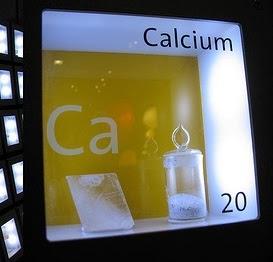
Photo detail by faria!.
I recently received a DXA scan and found out that I have osteopenia, a level of bone density that is lower than "good" but higher than osteoporosis. For this reason, I've been reading more about bone health and talking to experts and lay people alike about the issue.Very casually, many health care professionals and individuals state, "take a daily calcium supplement." However, I wanted to look into the issue of supplements before taking a daily pill.
If you want to read a very good source on the topic, see this page on Calcium supplements as prepared by the Office of Dietary Supplements at the National Institutes for Health. It's detailed and comprehensive. After reading this page, I understand the value of learning more about supplements before taking them.
It turns out that the issue is more complex. In fact, you should consult a health care professional to get solid information on the topic. Nutrition is so complex and individual, it's a little silly for me to address the topic at all. I'm not a doctor, but I'm researching this for myself, and these are some of the issues you can look at, too. But don't commit to a plan of action--or inaction--until you consult with a licensed professional.
The way you ingest calcium, how your body absorbs calcium and how your body excretes calcium are all variables that need to be managed. This is true not just because it's dangerous to have low levels of calcium; it's also dangerous to have high levels of calcium.
Let's break down the above paragraph, piece by piece.
How Can I Acquire Calcium?
1. Natural Sources in Food
2. Fortified Foods
3. Supplements
4. Prescription Medications
There are a lot of forms for calcium. I started keeping a list as I researched the topic. I thought there would be just a half dozen. However, I found a pretty long list on this page. Admittedly, some of these names merely like foreign-language versions. Nevertheless, it might be easy for me to get too much calcium if I fail to read food labels.
How Many Variables Affect Absorption of Calcium?
Too many for me to list exhaustively or accurately.
I will just mention briefly that some factors include increased age, stress, medications, other supplements and the person's diet all can affect how calcium is absorbed and excreted. Again and again, I read that smaller amounts of calcium in whole foods are usually better absorbed than large amounts of calcium taken in a supplement. Also, caffeine, diuretics and over consumption of protein can cause an increase in the excretion of calcium. And calcium cannot be absorbed without being paired with adequate Vitamin D, magnesium, phosphorus and other vitamins and minerals. Also, certain conditions and diseases can affect rates of calcium absorption / excretion.
Can It Be Possible to Have Too Much Calcium?
Yes.
Many know about the dangers of too little calcium, chiefly osteoporosis. However, excessive calcium can cause problems that range from the mild inconvenience of constipation, the greater inconvenience of kidney stones to the life-threatening dangers of cardiovascular disease, which can lead to a stroke or a heart attack.
The Mayo Clinic advises people to inform their doctor about any calcium supplements taken without a prescription in order to prevent one cause of hypercalcemia (too much calcium).
Still Reading and Thinking
Well, now I know that I need to keep reading about and thinking about calcium before I just start taking daily supplements. In the mean time, I have a grocery list that includes canned salmon, canned sardines, kale, collard greens, broccoli, and tofu. I'll enjoy these foods and some weight bearing exercise while I'm mulling things over.
Related:
What Is Osteopenia?

